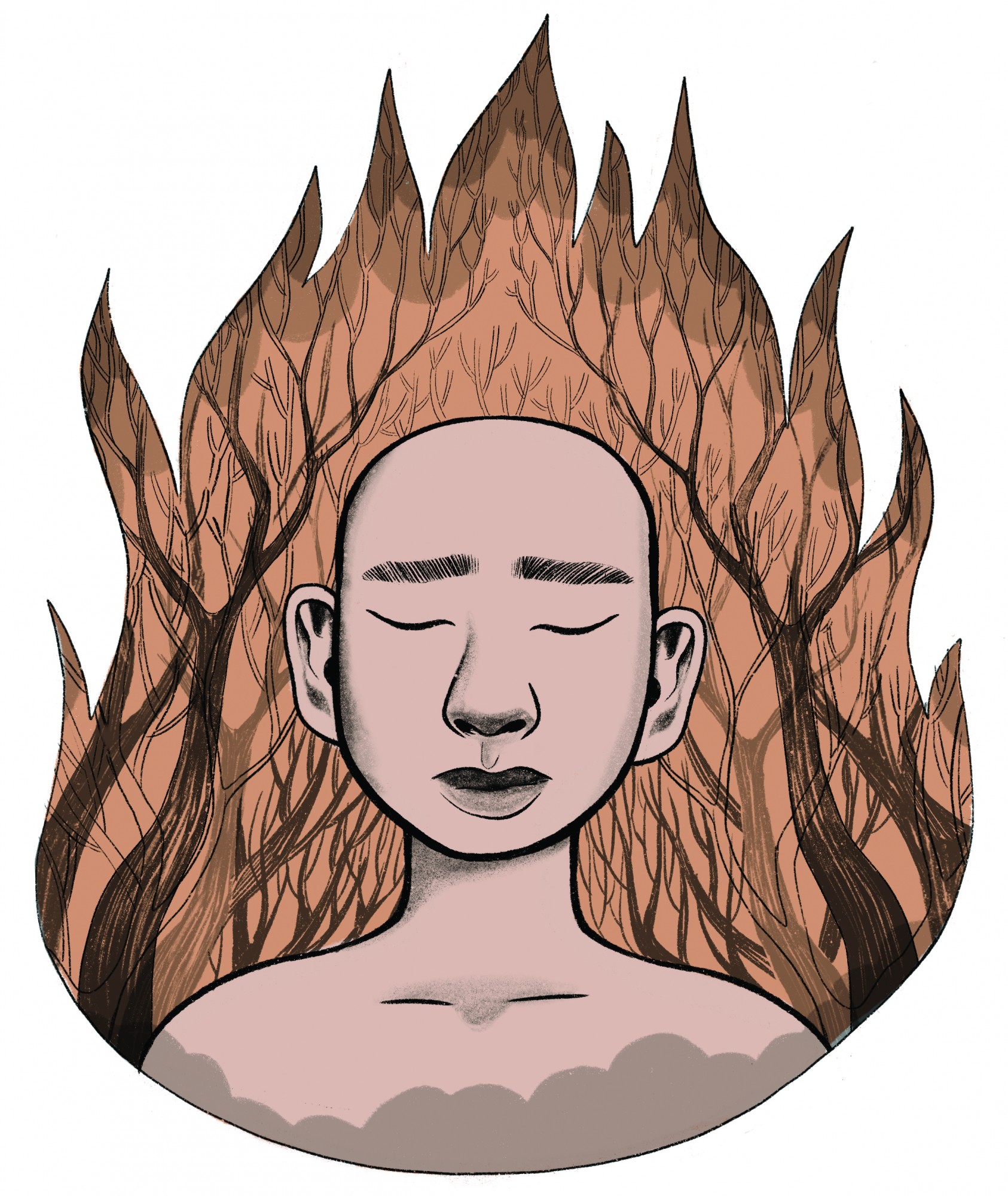Caroline Arkesteyn has always considered climate change a “monster under the bed.”
As a master’s student studying environmental policy, Arkesteyn said she learns something worse about the environment every day.
And even if it is not something she actively thinks about, climate change is always something that lurks in the back of her mind.
The relatively new term “eco-anxiety” describes a feeling of distress or anxiousness related to environmental change. Thought it can be difficult to measure, experts are seeing it increase among young people. More than half of American teenagers said they felt scared about climate change, according to a 2019 poll conducted by the Washington Post-Kaiser Family Foundation.
Kristi White, a clinical health psychologist, said that even though eco-anxiety is not classified as a mental health disorder, she has seen a recent influx of patients who come in suffering from its symptoms.
The symptoms are similar to those of anxiety and are often characterized by an increased heart rate and a constant state of worry. Climate-related distress can also worsen pre-existing mental health conditions like depression and general anxiety disorder.
Although anxiety can be beneficial if it motivates and encourages helpful behavior change, White said climate anxiety can sometimes be so overwhelming it is immobilizing.
“The distress people are experiencing around this is not irrational … [it] is an appropriate concern for something that is happening,” she said. “I think sometimes we can [help] people channel that energy and that distress and that concern into meaningful action.”
For Katherine Schmid, co-leading a MN Youth Climate Strike chapter on campus last November helped them channel their eco-anxiety into something productive and meaningful.
“I come across students that are like, ‘Well why does this even matter, we’re all going to die anyway’ — stuff like that,” Schmid said. “I can’t let myself think that way because then I would never want to do the work that I’m doing.”
Schmid said last year they were so frustrated and anxious about political inaction with climate change they stopped participating in activism all together.
“I felt like it was too big of a problem for me to handle, so I just shut down,” they said. “I didn’t deal with it for a while.”
After attending last September’s youth climate strike, however, Schmid had a change of perspective.
“I think what is really hard about climate change … is that people think that you have to take it on alone,” they said. “And it’s not realistic.”
With MN Youth Climate Strike, Schmid said they found a sense of community among those who cared about the state of the environment and felt the same eco-anxiety they did.
“Being in a group of people who support the work that I want to do and who also are ready to do that work has been the most important thing,” Schmid said.








